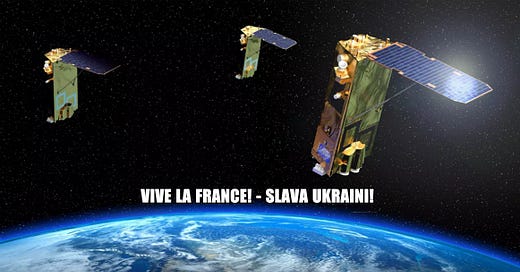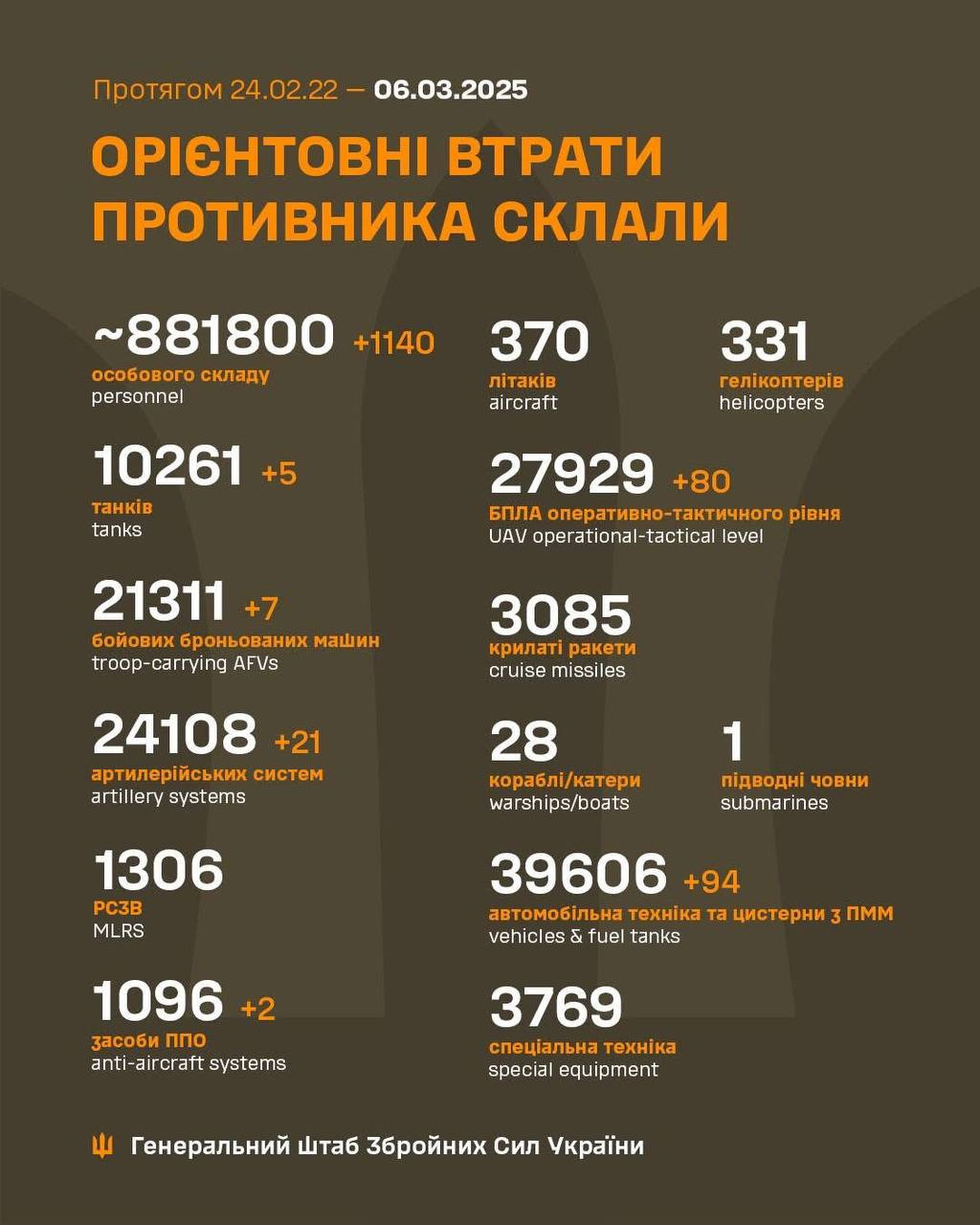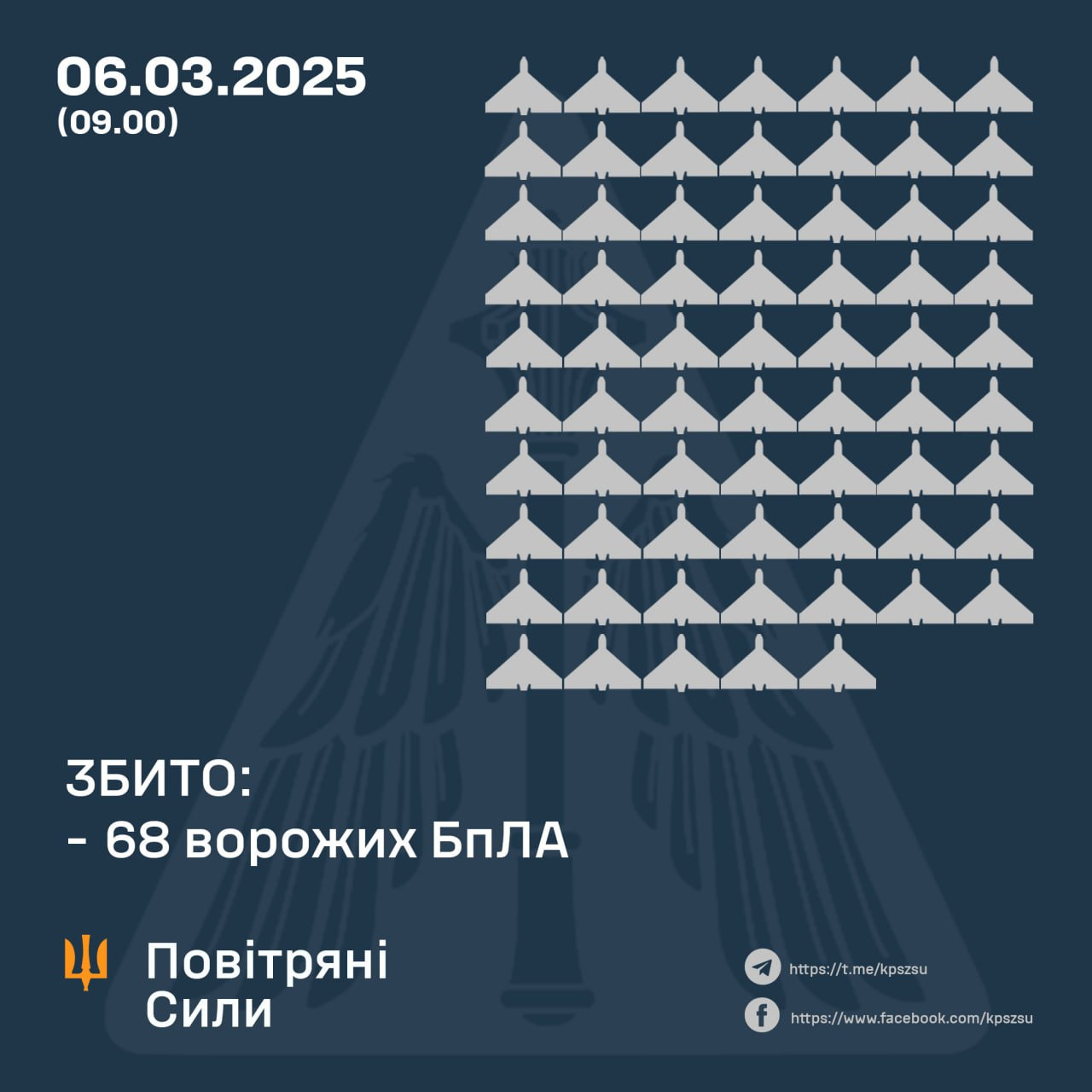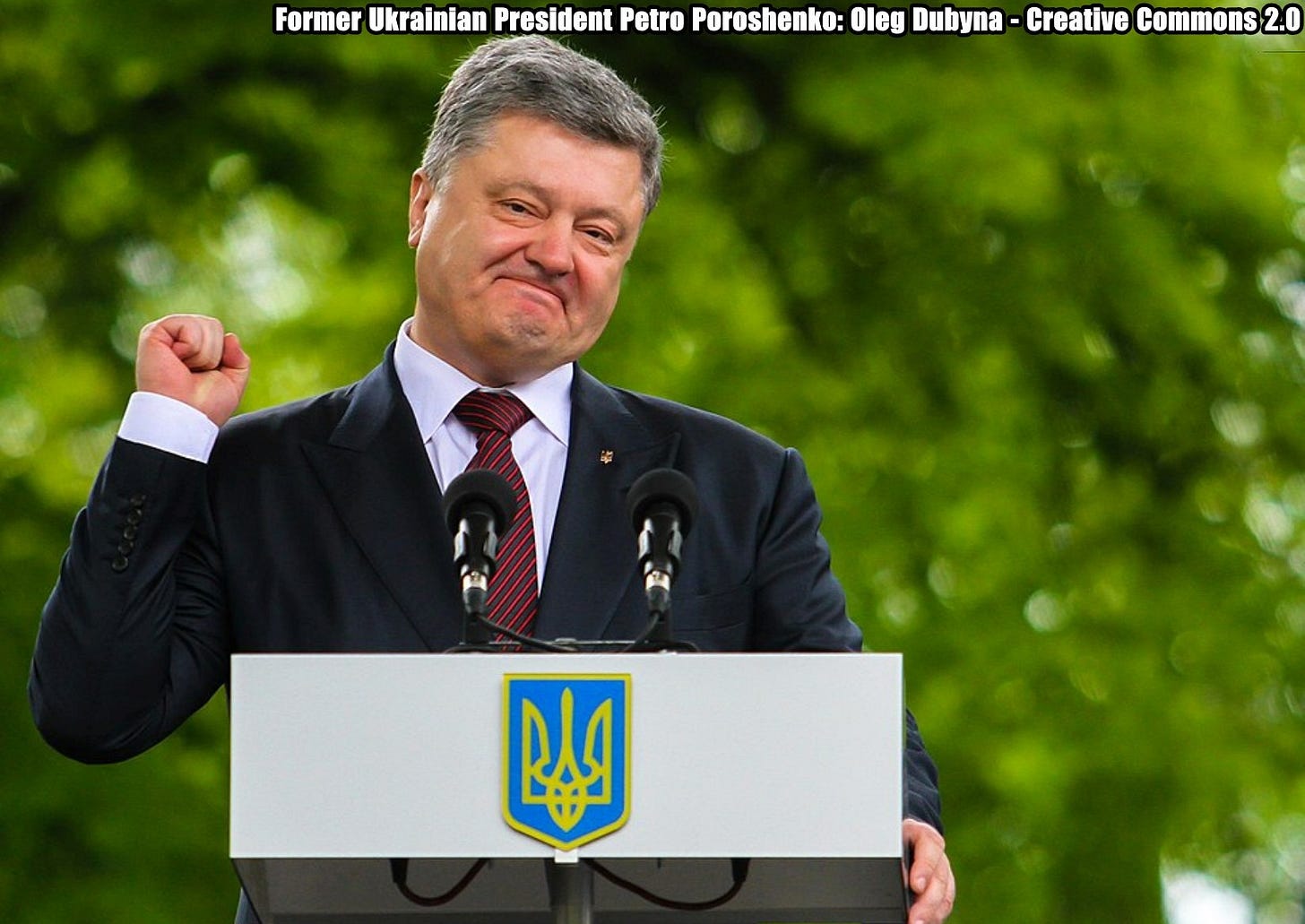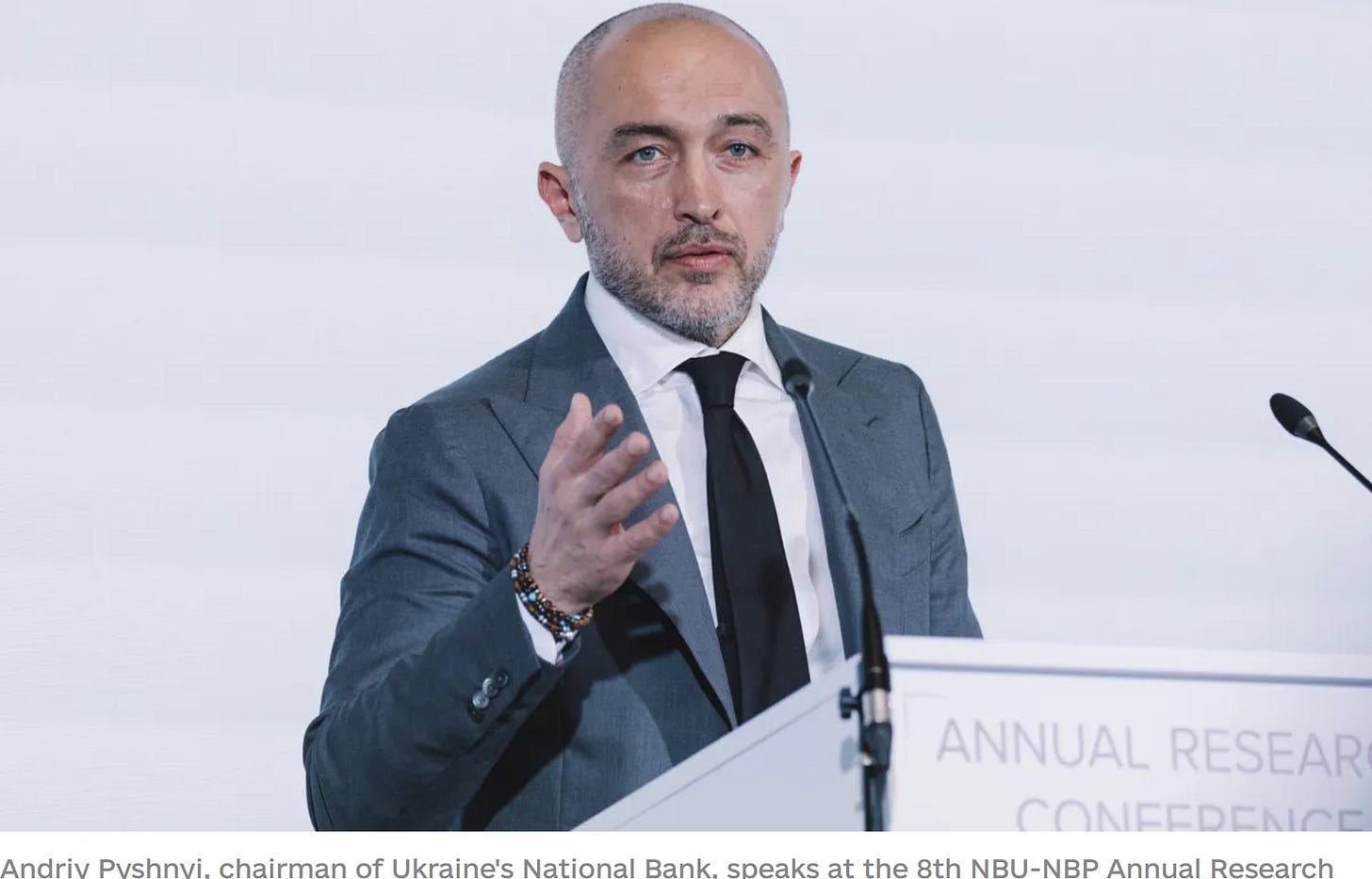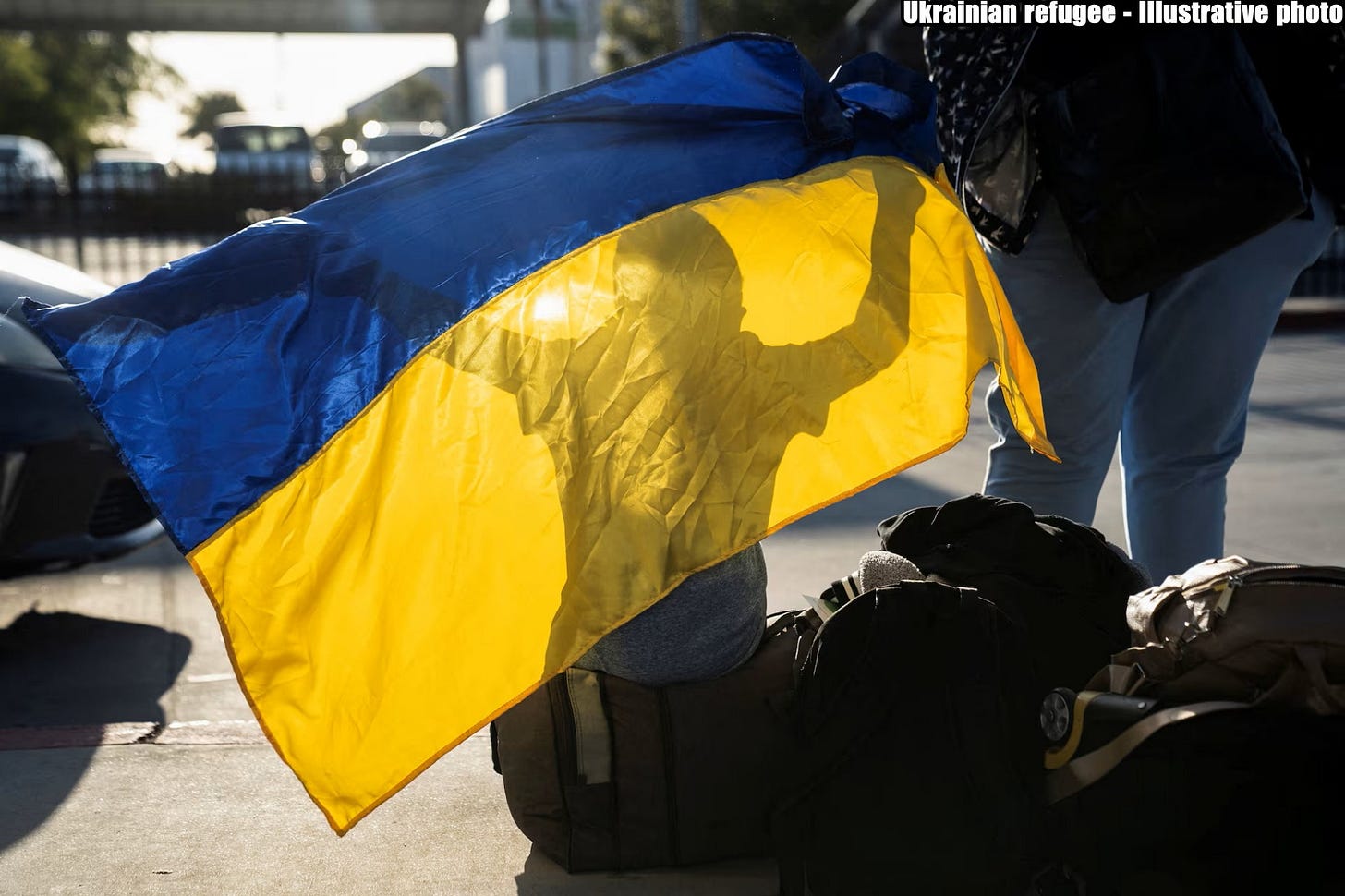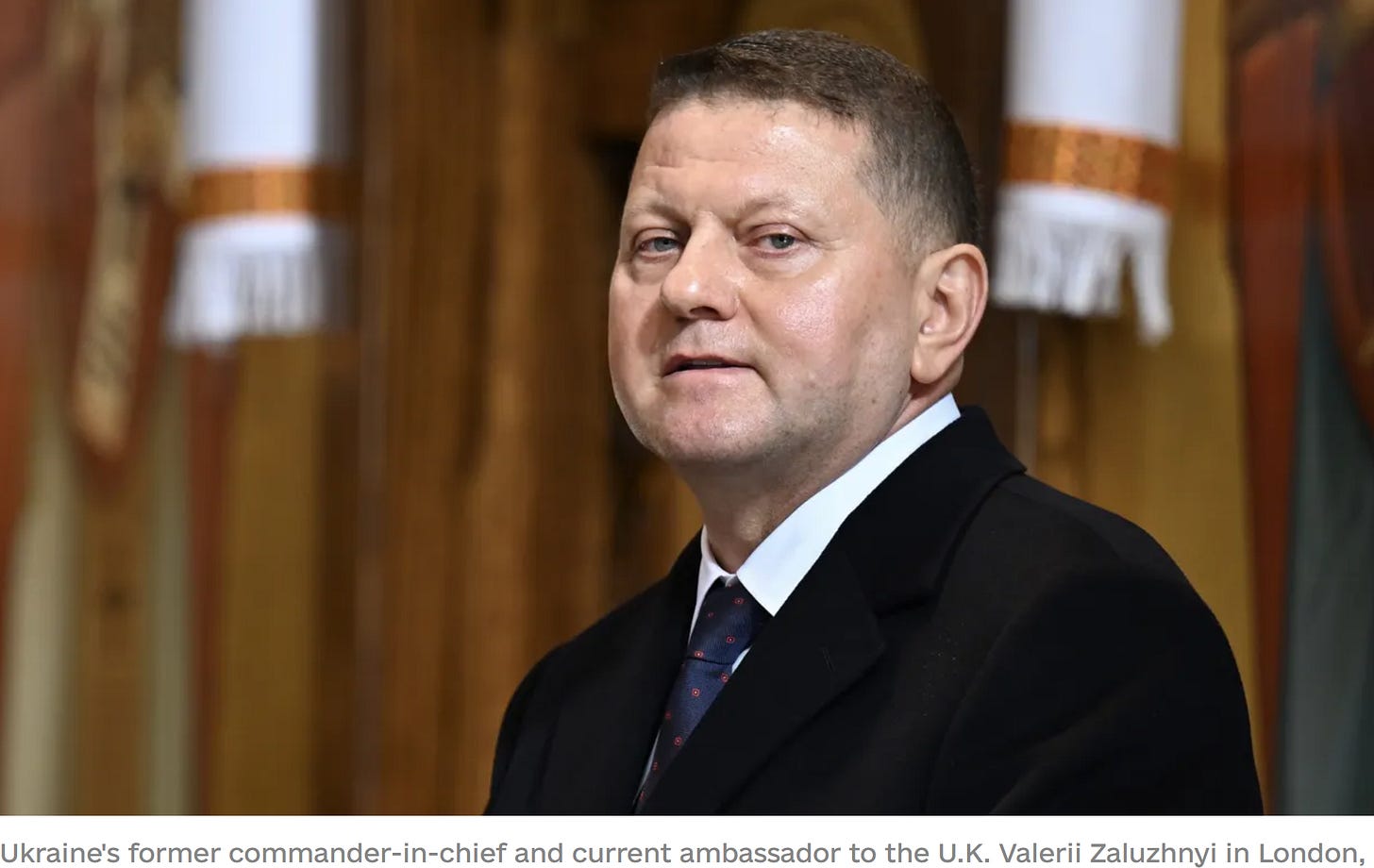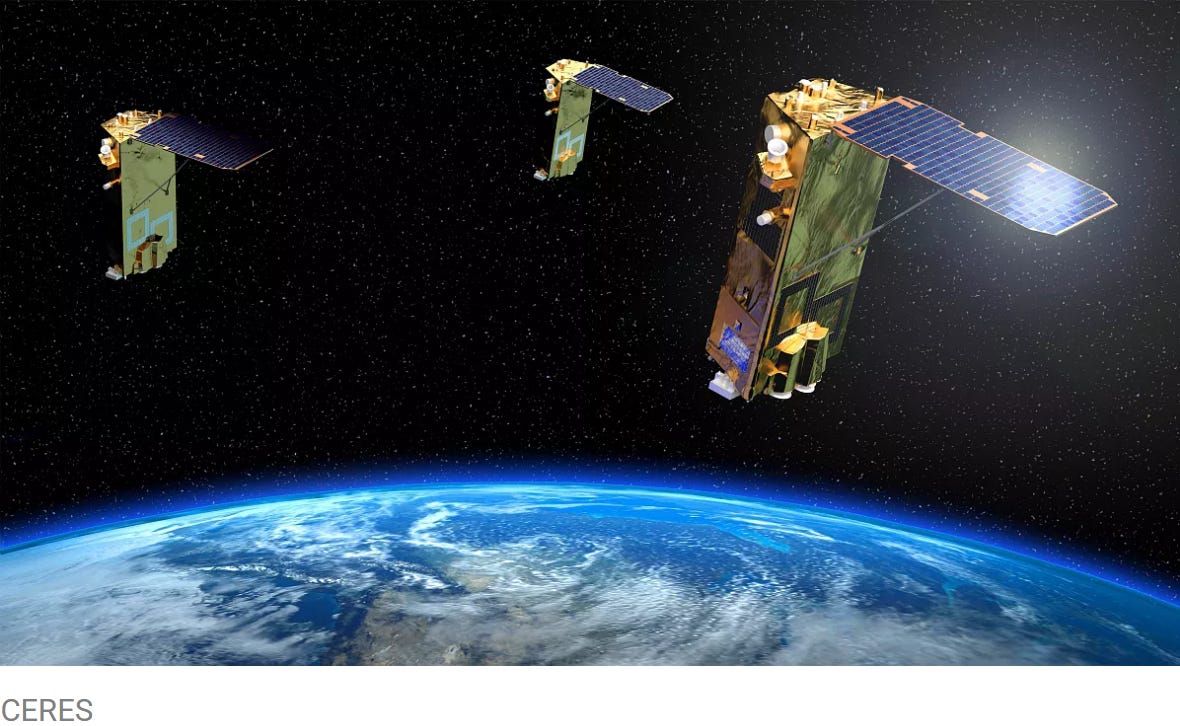Slava Ukraini! In early 2022 I began a Telegram channel aggregating news from a number of sources daily on the war in Ukraine. In June 2023 I began providing a daily draft for the Ukraine War Brief Podcast collecting news from over 70 sources daily, which formed the basis of the script. While the Podcast no longer exists I have continued to make this Brief available for my followers here on Substack for those who wish to keep up with the news from the war.
All the latest news on the Russo-Ukraine War 6 days per week
I apologize for the delay in today’s brief it was due to some late breaking news that I felt was important to include
ALONG THE CONTACT LINE
GSAFU Morning Report
The General Staff of the Armed Forces of Ukraine in its Operational Information update at 08:00 on Mar 6 stated that day 1107 of the full-scale invasion of the Russian Federation against Ukraine had begun.
The situation on the line of combat remains tense in some sectors. Ukrainian defenders continue to actively counteract the Russian aggressor, causing them significant losses in personnel, equipment and technology. Exhausting the enemy along the entire front line and continuing to disrupt the plans of Russian occupiers to advance deeper into the territory of Ukraine.
During the past day,109 combat engagements took place.
Over the past 24 hours, the enemy carried out 3 missile strikes, 85 air strikes, used 2,547 drones and fired approximately 4,000 artillery shells across the positions of Ukrainian forces and civilians.
Air Force Daily Report
68 ENEMY UAVS SHOT DOWN, 43 DRONES FAILED TO REACH THEIR TARGETS (LOCATIONALLY LOST)
➖➖➖➖➖➖➖➖➖
On the night of Mar 6, 2025 (from 19:00 on Mar 5), the enemy attacked with two Iskander-M/KN-23 ballistic missiles from the Voronezh region — RF and Crimea, and 112 Shahed attack UAVs and simulator drones of various types from the directions: Orel, Kursk, Shatalovo, Bryansk — RF, Chauda — Crimea.
The air attack was repelled by aviation, anti-aircraft missile troops, electronic warfare units, and mobile fire groups of the Air Force and Defense Forces of Ukraine.
As of 09:00, it has been confirmed that 68 Shahed attack UAVs and drones of other types have been shot down in Kharkiv, Poltava, Sumy, Chernihiv, Cherkasy, Kyiv, Kirovohrad, Dnipropetrovsk and Odessa regions.
43 enemy drones-simulators - lost in location (without negative consequences).
As a result of the enemy attack, the Kharkiv, Sumy, Odessa, and Dnipropetrovsk regions suffered.
Combat Operations in the Kursk Sector, Russian Federation
The Institute for the Study of War (ISW), a US based think tank, in its Mar 5 Russian Offensive Campaign Assessment reported that Russian forces continued offensive operations in Kursk Oblast on Mar 5 but did not make any confirmed advances.
A Russian source claimed that Ukrainian forces are counterattacking in southern Sudzhansky Raion.
The Khortytsia operational-strategic group
(Responsible for the northeastern part of Ukraine. )
There have been no major changes to the combat environment since our last report.
The Tavria operational-strategic group
(Responsible for the central-eastern and southeastern part of Ukraine.)
Pokrovsk Sector : Ukrainian forces recently advanced in the Pokrovsk direction.
Geolocated footage published on Mar 5 shows Russian forces striking several Ukrainian armored vehicles in eastern Shevchenko (south of Pokrovsk), indicating that Ukrainian forces recently advanced in the area.
A Russian milblogger claimed that Ukrainian forces used up to a battalion's worth of armored vehicles in the assault against Shevchenko, but ISW cannot independently confirm this claim. Russian milbloggers claimed that Ukrainian forces advanced within Uspenivka (southwest of Pokrovsk) and north (right) bank of the Solona River in western Novoserhiivka (north and west of Uspenivka).
The Odesa operational-strategic group
(Responsible for Kherson, Qırım, (also known as Crimea) and the Black Sea.)
There have been no major changes to the combat environment since our last report.
TEMPORARILY OCCUPIED TERRITORIES
Nothing major to report.
THE HOME FRONT
Russian missile attack on hotel in Kryvyi Rih kills 4, injures 32, including child.
Russian forces struck a hotel in Kryvyi Rih in Dnipropetrovsk Oblast with a missile on March 5, killing four people and injuring at least 32, including a child, Governor Serhii Lysak reported.
The missile struck the five-story hotel around 10 p.m. local time, killing a 53-year-old man. Lysak later reported that two men and a woman were killed in the attack, and a 43-year-old man died in the hospital the following morning.
At least 32 other people suffered injuries, including a child. Fourteen of the victims are in serious condition, Lysak said. Most of the wounded have been hospitalized.
"Just before the strike, volunteers from a humanitarian organization checked into the hotel – citizens of Ukraine, the U.S., and the U.K.," President Volodymyr Zelenskyy said.
"They survived because they managed to escape their rooms." Zelenskyy did not specify whether the volunteers suffered any injuries.
The missile strike also damaged 14 apartment buildings, a post office, almost two dozen cars, a cultural center, and 12 shops, the governor said.
Emergency crews are currently working on-scene to clear the rubble from the attack site. Ukraine's State Emergency Service said that there may be additional victims under the rubble.
Kryvyi Rih, the hometown of President Volodymyr Zelenskyy, remains a frequent target of Russian missile attacks. With a population of about 660,000, it is the second-largest city in Dnipropetrovsk Oblast, located roughly 70 kilometers (40 miles) northwest of the nearest front line.
Ukrainian opposition leaders dismiss the idea of wartime election.
Ukrainian opposition leaders have dismissed the idea of holding a wartime election, after a media report of contacts between them and U.S. officials and in the wake of President Donald Trump calling his Ukrainian counterpart Volodymyr Zelenskyy a "dictator" for not holding one, Reuters reports.
Former Ukrainian president Petro Poroshenko said on Thursday his team was working with U.S. "partners" to maintain support for Ukraine - but he added that he was opposed to a wartime election.
In a written statement published on Telegram, Poroshenko said elections should only happen after peace had been established. He added that a vote should take place no later than 180 days after the end of the war.
Yuliia Tymoshenko, another opposition leader, said her team "is talking with all our allies who can help in securing a just peace as soon as possible," and said that elections should not take place before this had been achieved.
Politico reported on Wednesday that four senior members of Trump's entourage had held discussions with some of Zelenskyy's top political opponents.
The talks were held with Tymoshenko and senior members of the party of Poroshenko, who was president from 2014 to 2019, Politico reported, citing three Ukrainian lawmakers and a U.S. Republican foreign policy expert.
The discussions focused on whether Ukraine could have quick presidential elections, according to the report.
Washington has paused military aid and intelligence sharing with Kyiv in stunning moves following Zelenskiy's public spat with Trump at the Oval Office a week ago. Zelenskyy has called the clash "regrettable" and said he is willing to work with the new U.S. president to achieve peace.
Moscow, which invaded Ukraine three years ago, claims Zelenskyy is illegitimate because his five-year term ran out in 2024. But under Ukrainian law elections cannot be held in wartime. Zelenskyy has instead offered to vacate his post in exchange for peace and NATO membership.
Poroshenko and Zelenskyy's political rivalry, meanwhile, goes back years. Last month Zelenskyy approved sanctions against Poroshenko for what the country's domestic spy agency described as "national security reasons", without giving details. Poroshenko said the move was politically motivated.
Ukraine's central bank raises key policy rate to 15.5%, warns about foreign policy risks.
Ukraine's National Bank (NBU) will raise the key policy rate from 14.5% to 15.5% per annum starting from March 7, chairman Andrii Pyshnyi said on Mar 6, the Kyiv Independent reports.
The move marks the second raise of the key policy rate since the beginning of 2025. In late January, the central bank raised it from 13.5% to 14.5%.
The Ukrainian economy was heavily hit by Russia's full-scale war. At the start of the invasion, inflation skyrocketed to 26.6% in 2022 from 10.0% in 2021. It subsided the following year, but in 2024, inflation again accelerated to 12%, exceeding NBU's forecast.
According to Pyshnyi, the decision aims to maintain the "attractiveness of savings" in the hryvnia currency, the stability of the foreign exchange market, and keeping expectations under control, which will bring inflation to the 5% target.
"The NBU will be ready to take additional measures in case of further risks to price dynamics and inflation expectations," Pyshnyi said.
The NBU raised its key policy rate to 10% in January 2022. It had remained unchanged since the beginning of the all-out war, but on June 3, 2022, the rate grew from 10% to 25%. For over a year, it remained at the same level, dropping to 22% in July 2023 and following a gradual decline. In December 2024, the NBU raised the key policy rate from 13% to 13.5% in response to inflationary developments.
The central bank said that the risks "of less favorable foreign economic trends" have increased due to "further geopolitical polarization of countries" and "the corresponding fragmentation of global trade."
The comments come amid seismic geopolitical shifts as the U.S. under President Donald Trump has adopted an increasingly hostile stance toward Ukraine, threatened to impose tariffs against other partners, and floated the idea of deepening an economic partnership with Russia.
Although the risks to the sufficiency of international financing remain "balanced," the amount of external support confirmed for 2025 should be "sufficient" to finance the budget deficit without issuing new debt and "to maintain an adequate level of international reserves," the statement read.
"This will allow the NBU to continue to ensure a stable situation in the foreign exchange market and controllability of inflation and exchange rate expectations," the central bank said.
Ukraine is working on alternatives for intelligence sharing.
Ukrainian Defense Minister Rustem Umierov said that after the US decision to suspend intelligence sharing, work is underway on alternatives to this process, Censor.net reports.
He said this during a joint press conference with the German Defense Minister in Berlin, Censor.NET reports.
"As for intelligence sharing, we have not yet received information on how it will be limited. But we are already working on alternatives, and if it is necessary, we will receive this data from Germany as well," Umierov said.
Earlier, French Defense Minister Sébastien Le Coronneu said that France was ready to provide Ukraine with intelligence after the United States temporarily suspended such an exchange of information.
The United States has completely stopped sharing all intelligence information with Ukraine, including that which could be used to strike Russian troops in the occupied Ukrainian territories, Sky News reported.
CIA Director John Ratcliffe confirmed that the United States had suspended arms sales and intelligence sharing with Ukraine.
Ukraine used to receive 80% of its intelligence from partners, mainly the United States.
RUSSIAN WORLD
Russia Condemns Macron’s Nuclear Umbrella Proposal.
Russian officials on Thursday criticized French President Emmanuel Macron’s proposal to extend France’s nuclear umbrella to European partners and the possible deployment of European forces to Ukraine as a deterrent against Russia. The Moscow Times reports.
Kremlin spokesman Dmitry Peskov called Macron’s remarks in a televised address Wednesday evening “very, very confrontational.”
“It seems that France indeed wants the war [in Ukraine] to continue,” Peskov told the state-run news agency TASS. “This is nuclear rhetoric and [France’s] claim toward nuclear leadership in Europe.”
Macron “did not mention Russia’s legitimate concerns and fears and, in this regard, the need for Russia to take retaliatory measures,” Peskov added.
Russian Foreign Minister Sergei Lavrov, responding to Macron’s warnings that Moscow poses a threat to Europe, described the speech as a “threat against Russia.”
Likewise, Foreign Ministry spokeswoman Maria Zakharova dismissed Macron’s comments as “detached from reality” and contradictory to his previous statements.
Macron’s remarks come amid concerns over U.S. President Donald Trump’s shift in transatlantic policy and efforts to broker peace talks between Russia and Ukraine.
In a televised address, Macron said the French were “legitimately worried” about the dawn of a “new era” after Trump, early in his second term, seemingly reversed U.S. policy on Ukraine and risked a historic rupture with Europe.
“Russia has become, at the moment I am speaking to you and for the years to come, a threat to France and Europe,” he said. “It would be madness to remain a spectator in this world of danger.”
Macron announced plans to discuss extending France’s nuclear deterrent to European partners and raised the possibility of deploying European troops to enforce a peace deal in Ukraine.
“Who can believe that this Russia of today will stop at Ukraine?” he added.
RELATED INTERNATIONAL NEWS
Trump to revoke legal status for 240,000 Ukrainians as US steps up deportations.
U.S. President Donald Trump's administration is planning to revoke temporary legal status for some 240,000 Ukrainians who fled the conflict with Russia, a senior Trump official and three sources familiar with the matter said, potentially putting them on a fast-track to deportation. Reuters reports.
The move, expected as soon as April, would be a stunning reversal of the welcome Ukrainians received under President Joe Biden's administration.
The planned rollback of protections for Ukrainians was underway before Trump publicly feuded with Ukrainian President Volodymyr Zelenskiy last week. It is part of a broader Trump administration effort to strip legal status from more than 1.8 million migrants allowed to enter the U.S. under temporary humanitarian parole programs launched under the Biden administration, the sources said.
U.S. Department of Homeland Security spokesperson Tricia McLaughlin said the department had no announcements at this time. The White House and Ukrainian embassy did not respond to requests for comment.
A Trump executive order issued on January 20 called for DHS to "terminate all categorical parole programs."
The administration plans to revoke parole for about 530,000 Cubans, Haitians, Nicaraguans and Venezuelans as soon as this month, the Trump official and one of the sources familiar with the matter said, requesting anonymity to discuss internal deliberations. The plan to revoke parole for those nationalities was first reported, opens new tab by CBS News.
Migrants stripped of their parole status could face fast-track deportation proceedings, according to an internal ICE email seen by Reuters.
Immigrants who cross the border illegally can be put into the fast-track deportation process known as expedited removal, for two years after they enter. But for those who entered through legal ports of entry without being officially "admitted" to the U.S. - as with those on parole - there is no time limit on their rapid removal, the email said.
The Biden programs were part of a broader effort to create temporary legal pathways to deter illegal immigration and provide humanitarian relief.
In addition to the 240,000 Ukrainians fleeing the Russian invasion, and the 530,000 Cubans, Haitians, Nicaraguans and Venezuelans, these programs covered more than 70,000 Afghans escaping the Taliban takeover of Afghanistan.
An additional 1 million migrants scheduled a time to cross at a legal border crossing via an app known as CBP One.
Thousands more had access to smaller programs, including family reunification parole for certain people in Latin America and the Caribbean.
Trump as a candidate pledged to end the Biden programs, saying they went beyond the bounds of U.S. law.
The Trump administration last month paused processing immigration-related applications for people who entered the U.S. under certain Biden parole programs - placing Ukrainian Liana Avetisian, her husband and her 14-year-old daughter, in limbo. Avetisian, who worked in real estate in Ukraine, now assembles windows while her husband works construction.
The family fled Kyiv in May 2023, eventually buying a house in the small city of DeWitt, Iowa. Their parole and work permits expire in May. They say they spent about $4,000 in filing fees to renew their parole and to try to apply for another program known as Temporary Protected Status.
Avetisian has started getting headaches as she worries about their situation, “We don’t know what to do,” she said.
The USA is destroying world order, Ukraine's ex-commander-in-chief Zaluzhnyi says.
The U.S. is destroying the world order as Washington is making overtures to the Kremlin, Valerii Zaluzhnyi, Ukraine's former commander-in-chief and current ambassador to the U.K. said on Mar 6 as reported by the Kyiv Independent.
Speaking at the Chatham House, Zaluzhnyi said that President Donald Trump's administration has questioned the unity of "the whole Western world."
"Now Washington is trying to delegate the security issues to Europe without participation of the U.S. so we can say that in the near future, NATO likewise can stop existing," the ambassador said.
According to Zaluzhnyi, Europe can be Russia's next target. He said that fears of Western partners made it possible for Moscow to start forming "an axis."
The two key Russian allies, Iran and North Korea, supply Russia with weapons that are used against Ukraine. Pyongyang has also sent over 10,000 troops to fight alongside Russian forces in the embattled Kursk Oblast.
"We see that it's not just the axis of evil and Russia trying to revise the world order, but the U.S. is finally destroying this order," Zaluzhnyi said.
"And when those countries of the axis conclude a strategic agreement between themselves, we should have thought maybe this is an attempt to revise the existing world order."
The remarks come amid rising tensions between Kyiv and Washington following a clash in the Oval Office exchange on Feb. 28 between President Volodymyr Zelensky and Trump.
The dispute led to the collapse of a bilateral deal on Ukraine's natural resources, after which the U.S. president paused all military aid and intelligence sharing with Ukraine.
The move to suspend aid to Ukraine came on top of other Kremlin-friendly steps recently taken by the U.S. The Trump administration has also been considering lifting sanctions imposed against Russia for its brutal all-out war against Ukraine that killed hundreds of thousands.
MILITARY & TECH
Paris Confirms Data Transfer to Ukraine, Shedding Light on France's Intelligence Capabilities.
France is a fairly autonomous country in terms of intelligence, with its own reconnaissance satellites and aircraft. Defense Express reports.
Ukraine can count on the transfer of intelligence data from France, as confirmed by the country's Defense Minister Sébastien Lecornu. This was a reaction to the suspension of US military aid and intelligence information, as confirmed by US officials.
France has a powerful intelligence system, though it is smaller than the United States'. At the same time, the main thing is that it is completely autonomous. This includes satellite intelligence.
The entire European segment of NATO is estimated to have around 50 military satellites, with 15 of them being French, while the United States operates about 250. The main tool of French space intelligence is the CERES (Capacité de Renseignement Électromagnétique Spatiale) system which consists of three electromagnetic reconnaissance satellites.
These satellites allow to triangulate any enemy activity in the electromagnetic spectrum with high accuracy, detecting communication centers, air defense systems, command posts, etc.
It should also be noted that Airbus, headquartered in Blagnac, France, has its own group of optical and SAR satellites. At the same time, two Pleiades Neo satellites provide ultra-high resolution of 30 cm per pixel.
It is also worth noting the significant number of commercial satellites providing up-to-date, high-resolution satellite images, including the Finnish ICEYE. In other words, it is impossible to claim that the United States has left Ukraine completely blind in terms of space intelligence.
As for aerial reconnaissance, including data from UAVs or aircraft patrolling near russia, the absence of American patrols or the lack of information sharing means that while it may decrease, it will not disappear entirely.
In particular, France operates four of its own AEW&C (airborne early warning and control) E-3F Sentry aircraft and three E-2C Hawkeye airborne early warning aircraft. At the same time, considering the pan-European segment, NATO, as an organization, operates an additional 14 E-3 Sentries under the flag of Luxembourg.
That’s it for today’s Brief folks if you would like to keep up with events in Ukraine daily please consider subscribing, it’s free!


